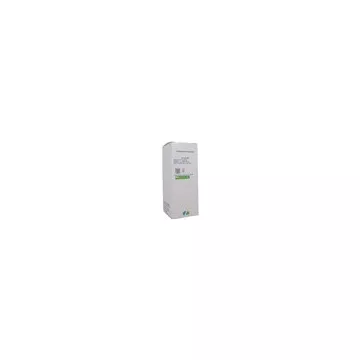Aching muscles after exercise, stress-related tension, night cramps or chronic pain... Muscle pain can quickly take its toll on everyday life. On Soin-et-Nature, discover a selection of homeopathic remedies adapted to relieve these discomforts in a natural and well-tolerated way. Whether the pain is caused by trauma, inflammation or overwork, homeopathy offers a personalized response to relax muscles, ease tension and promote gentle recovery, without undesirable side effects.
Muscle pain or myalgia is an unpleasant and distressing physical condition affecting striated muscles.
Torticollis, contractures, cramps, lumbago. Depending on the muscles involved, the pain is different, as are the measures to be taken.





Basic treatment involves medicines prepared from :
Aurum muriaticum, Calcarea phosphorica, Causticum, Ledum palustre, Luesinum, Medorrhinum, Natrum sulfuricum, Thuya occidentalis.
Discover our new range of homeopathic medicines to effectively treat your muscle pain problems.
Homeopathy is a form of alternative medicine developed in the 18th century by the German physician Samuel Hahnemann. It is based on the principle of similarity, which involves using substances that produce the same symptoms as those you wish to treat in a healthy individual. Thus, to treat muscular pain, we can use substances which, themselves, cause muscular pain when administered to healthy people.
There are many homeopathic remedies that can be used to treat muscle pain in children and adults. Among the most common are
Our pharmacists have put together a specific medication kit for muscle health: Homeopathy for Muscle Pain available at the best online price.
In general, homeopathic remedies are administered in the form of granules or drops, to be taken at regular intervals depending on the severity of symptoms. They can be used alone or in combination with other homeopathic or medicinal remedies.
It is important to note that homeopathy is not a substitute for conventional medical treatment, and that it is advisable to consult a doctor in the event of muscular pain.
When suffering from joint pain, self-medication with homeopathic medicines can limit the need for analgesics and anti-inflammatories.
Our pharmacists recommend :
You can also use homeopathic specialties such as Urarthone from Lehning Laboratories, a homeopathic drinkable solution traditionally used for rheumatic conditions (gout, chondrocalcinosis, etc.) and inflammatory arthritis flare-ups.
Homeopathic granules for joint pain can also be treated with medicines made from :
Berberis vulgaris, Caulophyllum thalictroides, Causticum, Ferrum metallicum, Ferrum phosphoricum, Formica rufa, Kalium iodatum, Phytolacca decandra, Polygonum aviculare, Rhododendron chrysanthum, Viola odorata.
Relaxing homeopathy is a gentle, natural therapeutic method that offers an alternative to conventional treatments for relieving muscular tension and stress, and improving overall health. Based on the principles of traditional homeopathy, this approach takes into account the whole individual, treating physical symptoms as well as emotional and mental aspects. In this article, we'll explore in detail the benefits of relaxing homeopathy and how it can help improve your day-to-day well-being.
Relaxing homeopathy is a specific form of homeopathy, focused on relieving muscular tension and relaxing the body and mind. It is based on the principle of similitude, which postulates that a substance capable of causing certain symptoms in a healthy person can also be used to treat them in a sick person, once diluted and dynamized.
Relaxing homeopathy uses natural remedies, usually in granular or diluted form, to stimulate the body's self-healing capacities. Each remedy is selected according to the specific symptoms and particularities of the individual, with the aim of restoring energy balance and promoting natural healing.
The homeopathic remedies used in relaxing homeopathy are derived from natural substances such as plants, minerals and sometimes even animals. These substances are then diluted and dynamized, a process designed to maximize their therapeutic potential while minimizing the risk of side effects.
Relaxant homeopathy is particularly effective in relieving muscle and joint pain. Whether you suffer from cramps, spasms or chronic pain such as arthritis, homeopathic remedies can provide significant relief. For example, remedies such as Arnica montana and Ruta graveolens are often used to treat muscle pain and sports injuries.
As well as relieving pain, relaxing homeopathy can also improve mobility and speed recovery from injury. It helps reduce inflammation and helps the body repair itself more quickly, making it a valuable option for athletes and people undergoing rehabilitation.
Another notable benefit of relaxing homeopathy is its beneficial effect on the immune system. By stimulating the body's natural defenses, it not only helps prevent illness, but also promotes better overall health. Remedies such as Echinacea or Silicea are often used to boost immunity and support post-operative healing.
Relaxing homeopathy doesn't just treat physical symptoms; it also plays a crucial role in managing stress and anxiety. Homeopathic remedies can help calm the mind, reduce nervousness, and promote a general sense of calm. For example, remedies such as Ignatia and Gelsemium are often recommended for people suffering from stress or anxiety disorders.
Sleep is essential for good mental and physical health. Relaxing homeopathy can help regulate the sleep cycle, promoting deep, restorative rest. People suffering from insomnia, nightmares or nocturnal agitation may benefit from specific remedies such as Coffea cruda or Passiflora.
As a complement to conventional therapies, relaxing homeopathy can be useful in the treatment of mood disorders, such as mild to moderate depression. By stimulating the production of neurotransmitters such as serotonin, certain homeopathic remedies can help improve mood and restore emotional balance.
Chronic pain, whether due to conditions such as fibromyalgia, arthritis or back pain, can be difficult to manage. Relaxant homeopathy offers a natural alternative to traditional analgesics, with remedies such as Rhus toxicodendron and Bryonia targeting joint and muscle pain. This approach provides pain relief while avoiding the side effects of conventional drugs.
Digestive disorders are another common indication for relaxing homeopathy. Remedies such as Nux vomica for heartburn or Carbo vegetabilis for bloating can provide fast, effective relief. By treating not only the symptoms but also the underlying causes, this approach promotes healthy, balanced digestion.